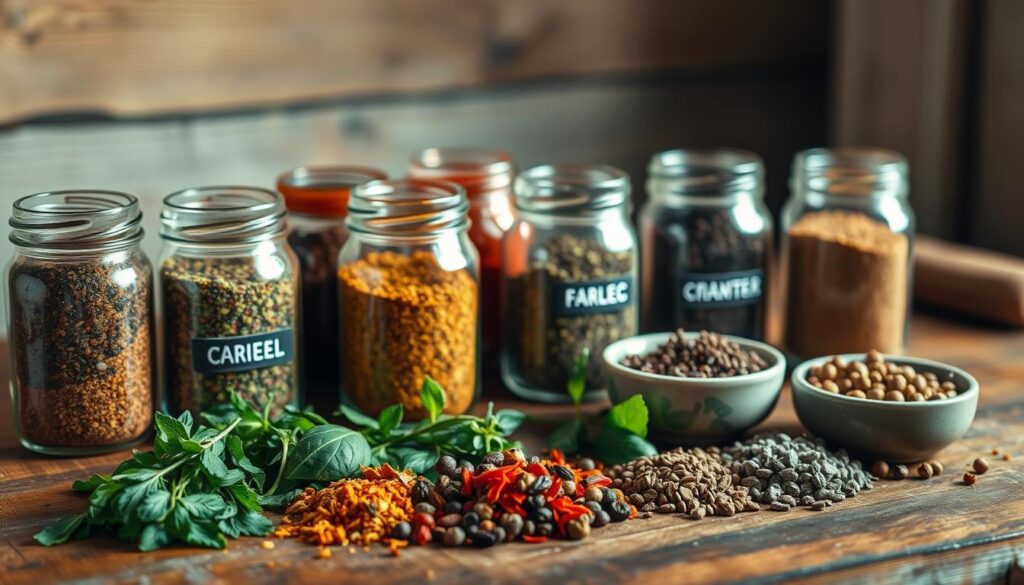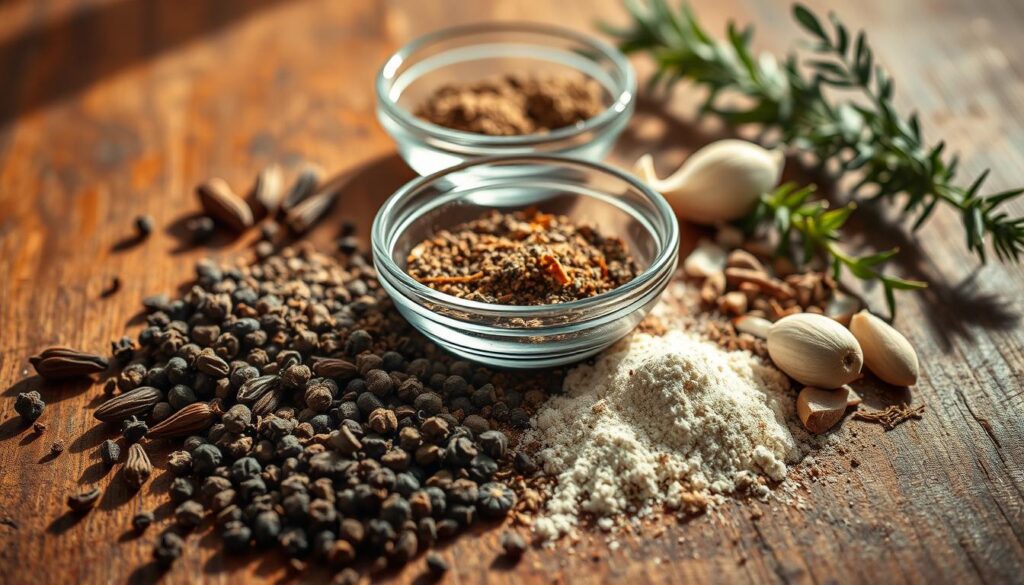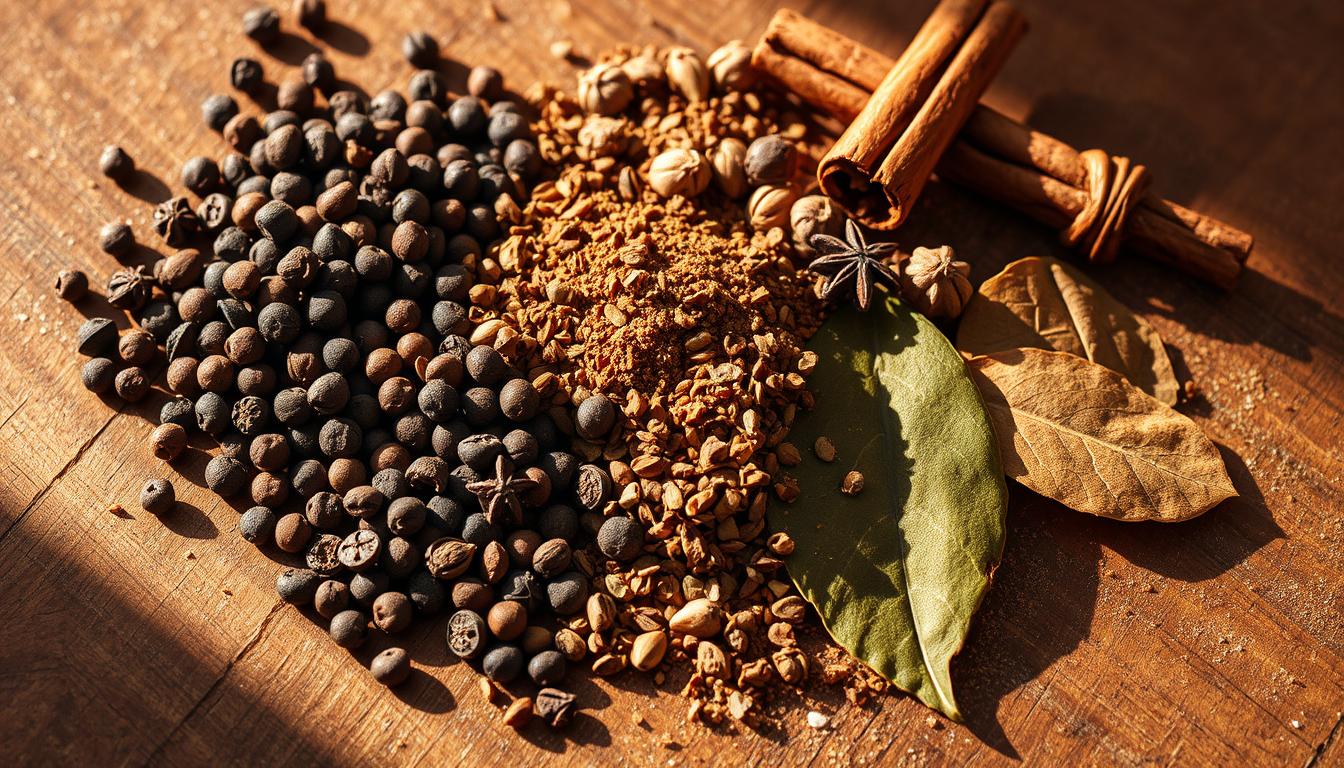The Best Beef Stew Seasoning: The Secret to Rich Flavor and Delicious Taste!
The Best Beef Stew Seasoning: The Secret to Rich Flavor and Delicious Taste!
There’s something magical about a simmering pot of hearty comfort food. Imagine the aroma of savory herbs filling your kitchen, the warmth of a meal that feels like a hug on a chilly evening. I remember my grandmother’s recipe—the way she’d whisper, “The secret’s in the spices.” Today, that wisdom still holds true.
Creating your own blend lets you control quality and taste in ways store-bought packets never could. You’ll skip excess sodium and artificial additives while unlocking layers of depth with ingredients already in your pantry. Think smoky paprika, earthy garlic, and aromatic herbs—each measured to suit your preferences.
This guide walks you through crafting a balanced mix that elevates every bite. Learn how to layer flavors by browning meat to perfection, sautéing onions until golden, and deglazing with red wine for richness. We’ll even share tips for thickening sauces naturally and adjusting spices as you go.
Table of Contents
Key Takeaways
- Homemade blends let you reduce sodium and avoid preservatives.
- Natural ingredients like smoked paprika and fresh herbs add complexity.
- Browning meat and caramelizing onions build foundational flavor.
- Flour thickens sauces while helping spices cling to ingredients.
- Adjusting herbs and acidity (like balsamic vinegar) tailors taste to your liking.
Understanding the Benefits of Homemade Beef Stew Seasoning
What if you could transform ordinary meals into extraordinary experiences with just a few spoonfuls of magic? Crafting your own blend puts you in the driver’s seat, letting flavors dance exactly how you want them. Let’s explore why ditching store-bought options unlocks tastier results and healthier choices.

Why Choose Homemade Over Pre-Made Packets?
Store shelves overflow with quick fixes, but hidden ingredients lurk in those colorful packets. Many contain preservatives or excess salt that muddle true taste. When you mix your own, you decide what matters—like swapping MSG for fresh rosemary or reducing sodium without sacrificing depth.
Imagine tweaking a recipe to highlight smoky paprika or mellow garlic. Commercial blends can’t match that flexibility. Plus, you’ll save money using spices already in your pantry.
Exploring Natural Ingredients for Rich Flavor
Dried oregano adds earthy warmth, while thyme brings subtle citrus notes. Combine them with cracked black pepper and a pinch of red pepper flakes for layers that sing. “The right balance turns simple dishes into comfort food classics,” says one seasoned home cook.
For best results, use 2-3 tablespoons of your mix per pound of meat. Store leftovers in an airtight jar away from heat and light. Properly kept, your blend stays vibrant for six months—ready to elevate soups, roasts, or even roasted veggies.
DIY: How to Create the Ultimate Beef Stew Seasoning
Unlock restaurant-quality depth in your kitchen with a custom blend that turns basic meals into memorable ones. This mix combines pantry staples in precise ratios for rich, layered taste without artificial additives.

Ingredient Spotlight and Measurements
Start with 1 cup flour to help thicken sauces naturally. Add 2 tablespoons each of onion powder and smoked paprika for earthy sweetness. Include 1 tablespoon of salt and black pepper for balanced seasoning.
Herbs make the magic: 2 teaspoons dried rosemary adds pine-like freshness, while oregano brings peppery warmth. Don’t skip celery seed—its subtle earthiness ties everything together. For heat lovers, ½ teaspoon cayenne adds gentle kick.
Mixing Techniques for Balanced Flavor
Whisk all ingredients in a bowl until fully combined. Test a pinch—if it tastes flat, add more herbs. Too sharp? A teaspoon of sugar mellows harsh edges.
Store your mix in an airtight jar away from sunlight. Use 2-3 tablespoons per pound of meat, coating evenly before searing. “This method lets spices caramelize, creating deeper flavor,” notes a Texas-based chef.
Adjust freely: reduce garlic powder for milder profiles or double paprika for smokiness. Your kitchen, your rules—no two batches need be identical.
Tips and Tricks for Your Beef Stew
Mastering your favorite comfort dish starts with smart techniques. Whether you’re a first-time cook or a seasoned pro, these strategies ensure rich results every time.
Cooking Methods: Stove, Oven, or Slow Cooker
A Dutch oven works wonders for even heat distribution. Sear meat first to lock in juices, then simmer gently on the stove. For hands-off ease, a slow cooker tenderizes cuts over 6-8 hours on low.
Oven baking at 300°F lets flavors meld slowly. Cover with a parchment lid (called a cartouche) to trap moisture. “Low and slow is the golden rule,” advises a culinary instructor.
Customizing Your Seasoning to Taste
Start with half the recommended pepper if sensitive to heat. Add cayenne gradually or double garlic powder for boldness. Store your blend in a labeled mason jar—it stays fresh for 6 months.
This mix adapts to Irish-style dishes or veggie casseroles. Swap rosemary for thyme in poultry recipes. Your pantry, your rules!
Extra Flavor Boosters from Your Pantry
Stir in a spoonful of tomato paste for umami depth. A splash of red wine or balsamic vinegar brightens hearty bases. Fresh herbs like parsley add vibrancy just before serving.
Don’t forget a pinch of sugar to balance acidity. Pro tip: Freeze leftover paste in ice cube trays for future use.
Conclusion
Your kitchen journey just got more rewarding. Crafting a custom blend lets you own every savory note in your favorite dishes. Natural herbs and spices replace mystery additives, while adjustable salt and pepper levels keep meals heart-healthy without dulling flavor.
Start with quality garlic and smoked paprika as your base. Whisk in flour for thickness and pantry staples like rosemary for freshness. Store your mix in a glass jar—ready to transform roasts, soups, or veggie bowls in minutes.
Don’t fear experimentation. Swap thyme for oregano or add cayenne for heat. Each tweak makes the recipe uniquely yours. Share your creations online to inspire others seeking bold, homemade taste.
Now grab that Dutch oven and let aromas fill your home. With this guide, you’ve got the tools to turn simple ingredients into something extraordinary. What masterpiece will you simmer tonight?

